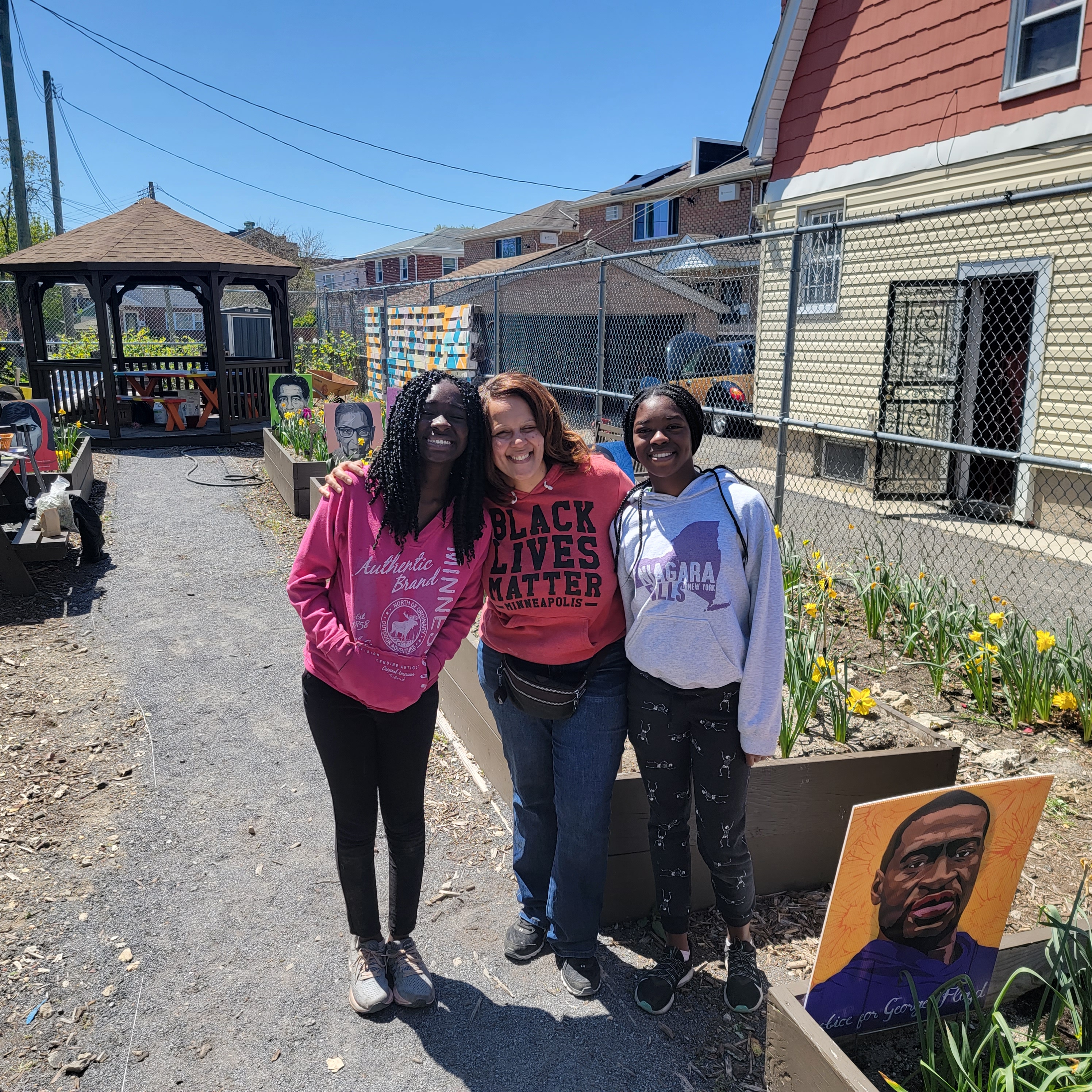I’ve been lucky enough to never have had any experience with food insecurity in my life. I’ve always known that there will be breakfast when I wake up, snacks in the fridge, and a fresh meal waiting for me at set points in the day. This is fair and how it should be for all others. I have food security. However, this isn’t true for many within our communities. They go through the constant stress and struggle that food insecurity can bring. Though I was always aware of this, my experiences in the Aim High program have highlighted this issue and better equipped me to handle food injustice in my community. It has been a wonderfully positive experience, and I’m happy that I was able to participate. I think that, as you read the following paragraphs, my appreciation for the garden and passion about the topic of food insecurity and justice will be evident.
The Garden of Resilience is a space that Southeast Queens needs. Spaces like this are an absolute necessity to provide an easy to access and shame-free fresh and free food with no strings attached. There is a stigma around food banks. Although this is an issue in its own right that should be addressed, community gardens may feel more welcoming towards members of the neighborhood. Instead of feeling ashamed and embarrassed that they are getting “handouts”, they will feel accomplished and proud that they helped to contribute to the food on their plate – even if it was an action as simple as dropping off compost! With obesity rates among New Yorkers at 22% and 12.9% of New Yorkers experiencing food insecurity, the Garden of Resilience and green spaces such as it will become even more important in coming years to combat these issues.
Not only this, but the Garden of Resilience is a burst of color and nature in the city. With the garden, we won’t only help residents by combating food insecurity, but we will also bring greenery to their neighborhoods. According to the WHO, urban green spaces can improve mental and physical wellness.
The Garden of Resilience is a space that promotes composting, and for good reason. Composting is a vital tool for communities of color when battling food insecurity. Composting is a beautiful process (though it doesn’t smell that beautiful). To take your food scraps, what would otherwise be trash, and contribute it to composting is to quite literally make treasure out of trash. Composting gives communities of color an easy way to reduce, reuse, recycle and contribute directly to their community.
Systemically and socially, there are many things that we could argue harm communities of color in Southeast Queens. Lack of access to proper education, police misconduct, lack of access to affordable healthcare and childcare, poor mental wellness and the stigma around it, the COVID-19 – the list could go on and on, and on some more. It can appear overwhelming and challenging to combat it, especially if you try to do it all at once. However, we can work from the ground, at the roots, and up from there. Continuing to plant and grow food for the community is the first step. Children learn better when they are well fed, people’s physical and mental wellness improves when they’re on better diets, etcetera. Our following steps should be to listen to the community so we know what it needs. Everyone needs their concerns to be listened to and respected so that we can work towards solving them. Someone may suggest putting up Little Free Libraries – so that kids start reading earlier. Or that we petition to have police officers who acted out of the restraints of the law fired and tried instead of “suspended”. We can do mental health workshops, to begin to break down a negative stigma that’s been building for years.
There’s much that we must get done. However, what’s vital to remember is that we are fueled by food. It is an essential part of our culture and the energy source that backs all the activism that we will go on to perform. That’s why we must keep in mind that community gardens, such as the Garden of Resilience, are among our most important urban spaces.











